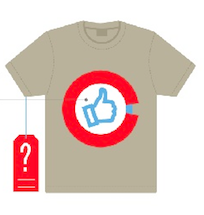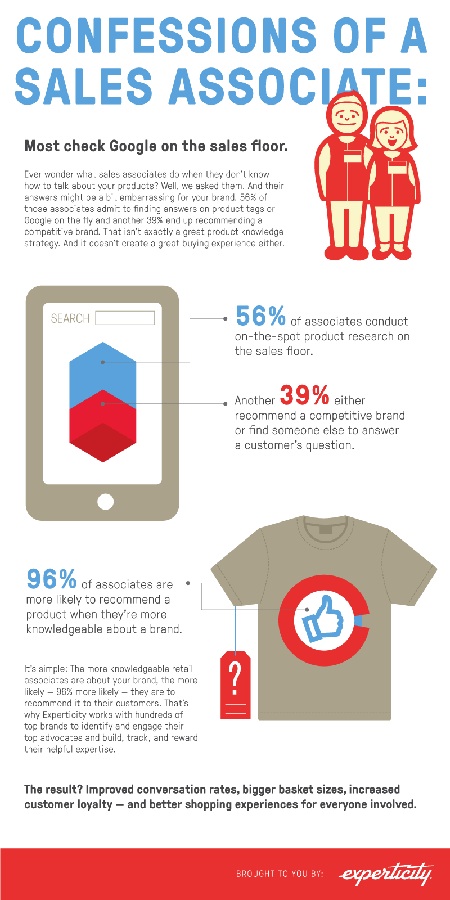Sales Strategy
Confessions Of A Sales Associate | October 14, 2015 (0 comments)

Merrick, NY—When you see an infographic with a title “Confessions of a Sales Associate,” it makes you think. And wonder. Do more than 50% of sales associates do research from their smart phone on the sales floor? On one hand, that’s hard to believe. So we consulted two industry experts for their opinions: Kate Peterson of Performance Concepts and Terry Chandler from The Diamond Council of America.
Neither were surprised by the information on the graphic, and both had insights that were spot-on for prestige jewelers.
After Chandler’s understandable initial surprise, “What the heck is an associate doing with their cell phone on the floor in the first place??” he went on to identify and address several issues.
“Millenneals will not buy from an associate they perceive knows less than they do about a product,” says Chandler. “Millennials will have done their homework and will know about their product before they shop.”

On the subject of training and product knowledge, Chandler says. “A major piece of product knowledge is trying to indoctrinate associates with the positive and specific reason that buyers choose a particular product over another. It’s no surprise that associates, many who are Millennials themselves, would recommend another—and competing—product. They look at themselves as consultants, and in many cases are to bound by loyalty to the store.”
Chandler thinks they may have missed the concept that the more they sell, the more they make!
He also related a relevant story from his retail days. “A man walks into one of my stores years ago and purchases a $50,000 Rolex. I introduced myself as the owner and thanked him for the business. I asked why he made the purchase at my store when I knew there were two other stores in the market that sold the same product. He told me he had been to those stores and my associates were the only ones that could show him how to set the timepiece,” continued Chandler. “He said, ‘I’m not spending fifty grand with someone that knows less than I do about the watch!’ True story. Product knowledge paid off well in that case.”


Sales experts Terry Chandler, left, and Kate Peterson, right, weren't surprised that sales associates will surreptitiously check their smart phones for information they weren't taught. But rather than fight it, harness it to keep control of the sale.
Peterson felt the infographic was accurate--to a degree.
“In my experience, it's vendor/brand web sites more often than Google. Brands make the sites accessible to consumers as well as dealers (usually in different forms), so it's not at all unusual for a customer to come in with information on a new style or something obscure that an associate has not yet heard about,” she says.
“Sure, it's in everyone's best interest that associates be knowledgeable and thoroughly trained, but realistically, it's as important that they be honest about what they don't know, and not try to research 'on the fly,’” she added.
“We teach people to offer to check out the info together, while the customer is in the store. That way, the associate can maintain control of the conversation and can continue to steer it toward close.”
Peterson was more interested in the statistic that says 96% of associates being likely to recommend a product when they are knowledgeable about the brand.
“This is gospel as far as I'm concerned!” she emphasizes. “We work hard with our vendor/brand clients to build effective training programs that function as front line sales support. The simple truth is that sales people lead their clients to, and sell the product/line/piece with which they are most comfortable. They will avoid those products they find confusing, unreliable, not representative of the store's standard (in their view) or not distinctive. The more they know, the more comfortable they are, and the more they sell!”
Clearly there are always good reasons to train your sales staff continually. It may be a good time to review your smart phone policy and ensure everyone knows what it is, as well as training on ‘What to do when your customer asks a question and you don’t know the answer.” It’s always better not to be surprised by those answers.
Graphic courtesy of Experticity.






